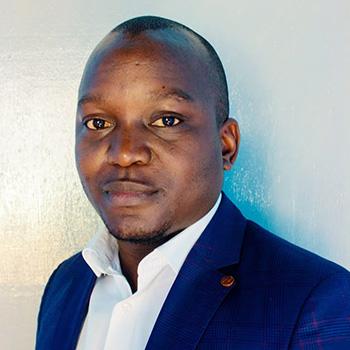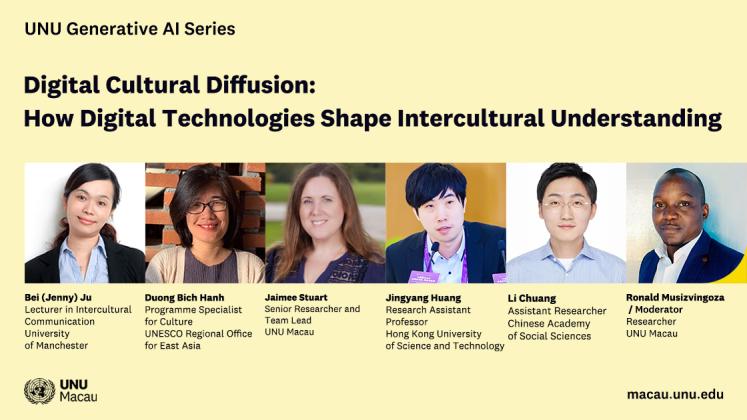Watch the full session:
Date: October 29, 2024
Time: 16:00 – 17:30 Beijing time | 08:00 – 09:30 London time
Open to the public
Registration: Click the link to register
In our interconnected world, digital technologies and media play a pivotal role in shaping how we understand ourselves, interact with others and share our histories and cultural worldviews. Technologies such as social media, online streaming, and videogames have all enabled the rapid, global exchange of ideas and information – and in all of these forms of media are embedded cultural values, beliefs, and practices. In fact, digital media can be seen to serve as a cultural gateway; connecting diverse groups of people, disseminating cultural information, and creating spaces for online communities of people who share a cultural background or values. Through digital media traditional culture can be transmitted and preserved and new cultural expressions can be developed. Digital technologies, therefore, can both foster cultural self-expression as well as raise awareness and support intercultural understanding. In this context, digital products and services enable cultural diffusion, or the spread and adoption of elements of one culture to other peoples and places. This webinar aims to explore the dynamics of digital cultural diffusion and to highlight the impact of technologies on cultural connection and intercultural understanding.
This webinar is sponsored by Tencent, in their capacity as a member of the UNU Global AI Network.
Panelists
Dr. Bei (Jenny) Ju
Lecturer in Intercultural Communication, The University of Manchester
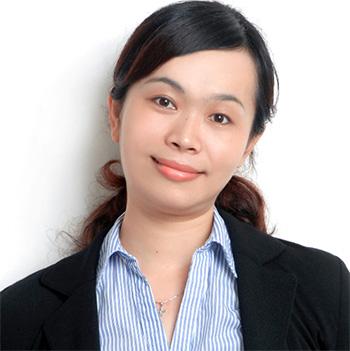
Bei (Jenny) Ju is a Lecturer in Intercultural Communication at the University of Manchester. Her research interests focus on the nexus between Information and Communication Technologies (ICTs) and migration within intercultural studies. Prior to joining the Centre for Translation and Intercultural Studies, Jenny was an assistant professor at the Faculty of Humanities and Arts at Macau University of Science and Technology (2019-2022), and worked as a researcher and outreach officer at the UNU Macau (2017-2019).
WeChat use among labour migrants during (cultural) adaptation
Due to the high cost of living in Macao, most mainland Chinese low-skilled workers commute daily across the Zhuhai-Macao border. This talk focuses on their social media use and adaptation in Macao. Most participants self-identify as ‘outsiders’ to Macao, who ‘belong’ to a place in mainland China due to the perceived hierarchy in Macao society. In their border-crossing experiences, WeChat, a mobile social networking site, functions as a digitally mediated space that provides labour migrants with communal solidarity, social interaction, access to information, and in some cases, economic benefits. During the COVID-19 border closures, the enabling yet constraining role of WeChat has been identified among the female migrant labourers, a group of essential workers who experienced both positive (happiness with newfound opportunities) and negative emotions (anxiety and entrapment).
Dr. Duong Bich Hanh
Programme Specialist for Culture, UNESCO Regional Office for East Asia
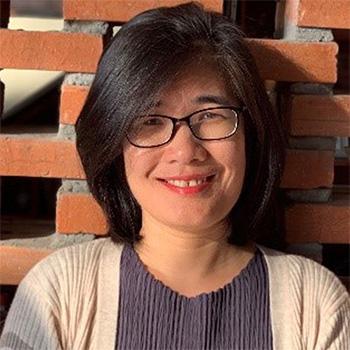
Ms. Duong Bich Hanh joined the UNESCO Regional Office for East Asia in August 2022 to manage the UNESCO culture programme in Democratic People’s Republic of Korea, China, Japan, Mongolia and Republic of Korea. Prior to this, she spent 13 years at the UNESCO Ha Noi and Bangkok Offices, supporting the Mekong countries to implement UNESCO’s six cultural conventions and promoting the role of culture and creativity in sustainable development. She also directed a number of UNESCO Asia-Pacific regional programmes such as the Asia-Pacific Awards for Cultural Heritage Conservation, and was involved in the conceptualization and implementation of new initiatives like the UNESCO Competence Framework for Heritage Management, Teaching and Learning with Living Heritage, and TechCul – enhancing the role of digital technology for culture.
Leveraging digital technologies for culture as a global public good
In an increasingly interconnected world, the intersection of culture and digital technology offers unprecedented opportunities to foster global understanding, preserve cultural heritage, and promote creativity. This presentation delves into the dynamic interplay between culture and digital technologies, highlighting how they can be leveraged to enhance heritage presentation, encourage cultural participation, and develop cultural industries for sustainable development. The presentation will also underscore the challenges and ethical considerations that arise from the integration of digital technologies into the cultural sector, such as the issues of digital divide, cultural appropriation, and the need for robust legal frameworks to protect intellectual property rights in the digital realm.
Dr. Jaimee Stuart
Senior Researcher – Team Lead, UNU Macau

Dr. Jaimee Stuart is a Senior Researcher and Team Lead at United Nations University Institute in Macau (UNU Macau), Jaimee Stuart is an applied cultural and developmental psychologist who specialises in digital health and wellbeing. Her research examines a broad range of issues related to social justice, peace, and development, with an aim to support the creation of safe, secure, and empowering online spaces for everyone. Jaimee has expertise in acculturation studies and participatory community research, having worked with Indigenous, migrant, and refugee communities in settler societies. She is Adjunct at Griffith University Brisbane and Victoria University of Wellington, has published over 80 journals and book chapters.
Intercultural Contact in the Digital Age: How Cyberspace is Changing Acculturation
Traditionally intercultural contact has been constrained by physical proximity but increased access to and use of digital technologies has broken down these barriers and resulted in cultural experience being increasingly digitally mediated. Importantly, technology has fundamentally altered the experience of migrants and refugees who are able to maintain contact with their home country in a near synchronous manner regardless of their location. This talk discusses a review of the research on the relationship between digital technologies and cultural adjustment, explicating how mobile phones, the internet, social media, and frontier technologies have and will continue to change how individuals from different cultural backgrounds interact, learn about and from one another, adapt to new cultural environments, and connect with their communities (both geographically near and far). Results of the review highlight the need for updated acculturation frameworks that incorporate the widespread influences of digital technology for all groups in intercultural contact.
Dr. Jingyang Huang
Research Assistant Professor, Hong Kong University of Science and Technology
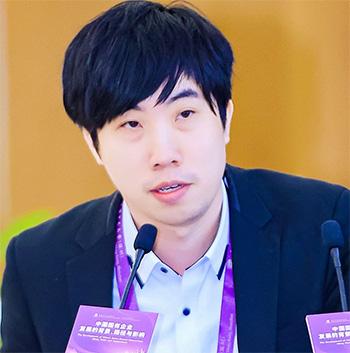
Jingyang Huang is Research Assistant Professor in the Division of Social Science. He obtained his Ph.D. in the Division of Social Science from the Hong Kong University of Science and Technology. He was awarded the Hong Kong Postdoctoral Fellowship (2022-2023). His research interests include comparative political economy, political sociology, and public policy. His recent research focuses on the political economy of digital governance in China, particularly to analyze the extensive business institutions and professional networks that arise from China's leveraging of information technology, and to examine the effectiveness of smart cities.
Content Globalization: How Cultural Economy Connects I-generation between China and ASEAN
The emergence of digital platforms has revolutionized the production of cultural content, giving rise to new forms of expression. In today's era of cultural and economic globalization, countries in the global South that traditionally consume cultural products are now also emerging as significant producers of content, exerting unexpected influence on communities in other parts of the world. Tencent and its related platforms have served as a facilitator for cultural exchanges, sparking enthusiasm among youth communities in China and Southeast Asian countries. This highlights the pivotal role that platforms play in promoting intercultural understanding.
Dr. Li Chuang
Assistant Researcher, Chinese Academy of Social Sciences

Dr. Li Chuang He holds a PhD in Sociology from Loughborough University, UK, and completed postdoctoral research at CASS. His research focuses on youth sociology, cultural sociology, and sports sociology. He has published several academic papers in Chinese and English journals, including YOUNG and China Youth Study. Currently, Li is leading a National Social Science Fund project and participating in multiple major CASS research projects.
Black Myth Wukong: Synergizing Culture, Tech, and Industry - A Cultural Materialist Exploration
This study examines how video games offer innovative pathways for articulating traditional Chinese culture in the digital age. Using a cultural materialist perspective, we analyze "Black Myth: Wukong" to investigate trends in video games across cultural representation, technological application, and industrial development. Drawing on developer interviews, content analysis, and industry data, we develop a framework focusing on the interplay between technology, industry, and cultural representation. Our findings reveal a dynamic relationship where culture-technology convergence drives industry innovation, while industrial evolution fosters cultural and technological advancement. Results indicate that high-quality digital games have the potential to revitalize the traditional Chinese culture, in a digital form that is appealing to a younger generation globally. We identify mechanisms for activating cultural IP digitally and elucidate innovative cultural production processes in digital environments. This research contributes to cultural production literature by demonstrating how digital technologies reshape cultural articulation and extends cultural materialist theory by applying it to the digital game industry.
Dr. Ronald Musizvingoza (Moderator)
Researcher, UNU Macau
